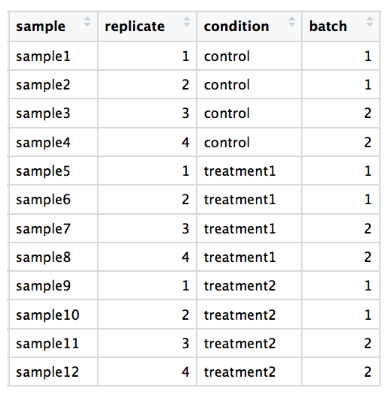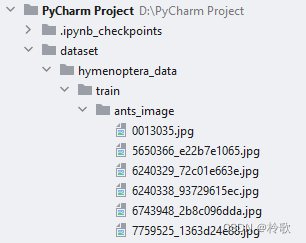记录:337
场景:在CentOS 7.9操作系统上,在ceph集群中,使用ceph命令查看ceph集群信息,以及mon、mgr、mds、osd、rgw等组件信息。
版本:
操作系统:CentOS 7.9
ceph版本:ceph-13.2.10
名词:
ceph:ceph集群的工具命令。
1.基础环境
在规划集群主机上需安装ceph-deploy、ceph、ceph-radosgw软件。
(1)集群主节点安装软件
安装命令:yum install -y ceph-deploy ceph-13.2.10
安装命令:yum install -y ceph-radosgw-13.2.10
解析:集群中主节点安装ceph-deploy、ceph、ceph-radosgw软件。
(2)集群从节点安装软件
安装命令:yum install -y ceph-13.2.10
安装命令:yum install -y ceph-radosgw-13.2.10
解析:集群中从节点安装ceph、ceph-radosgw软件。
2.命令应用
ceph命令,在集群主节点的/etc/ceph目录下使用。
(1)查看ceph版本
命令:ceph --version
解析:查的当前主机安装ceph的版本。
(2)查看集群状态
命令:ceph -s
解析:查看集群状态,使用频率高。
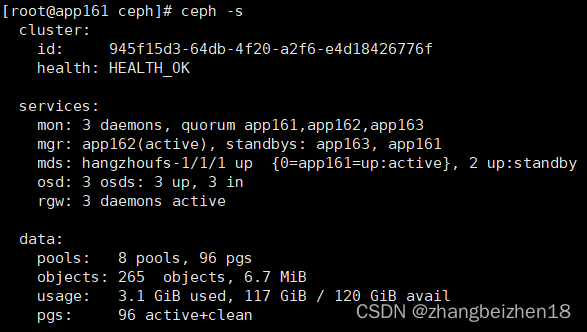
(3)查看集群实时状态
命令:ceph -w
解析:查看集群实时状态,使用命令时,控制台实时监控集群变化。
(4)查看mgr服务
命令:ceph mgr services
解析:命令会打印出:"dashboard": "https://app162:18443/";使用浏览器就能登录dashboard。
(5)查看mon 状态汇总信息
命令:ceph mon stat
解析:汇总mon状态。
(6)查看mds状态汇总信息
命令:ceph mds stat
解析:汇总mds状态。
(7)查看osd状态汇总信息
命令:ceph osd stat
解析:汇总osd状态。
(8)创建pool
命令:ceph osd pool create hz_data 16
解析:创建一个存储池,名称hz_data,分配16个pg。
(9)查看存储池
命令:ceph osd pool ls
解析:能看到存储列表。
(10)查看pool的pg数量
命令:ceph osd pool get hz_data pg_num
解析:查看pool的pg_num数量。
(11)设置pool的pg数量
命令:ceph osd pool set hz_data pg_num 18
解析:设置pool的pg_num数量。
(12)删除pool
命令:ceph osd pool delete hz_data hz_data --yes-i-really-really-mean-it
解析:删除pool时,pool的名称需要传两次。
(13)创建ceph文件系统
命令:ceph fs new hangzhoufs xihu_metadata xihu_data
解析:使用ceph fs new创建ceph文件系统;文件系统名称:hangzhoufs;存储池xihu_data和xihu_metadata。
(14)查ceph文件系统
命令:ceph fs ls
解析:查看ceph文件系统,打印文件系统名称和存储池。
(15)查ceph文件系统状态
命令:ceph fs status
解析:查ceph文件系统状态,打印文件系统的Pool的信息、类型等。
(16)删除ceph文件系统
命令:ceph fs rm hangzhoufs --yes-i-really-mean-it
解析:hangzhoufs是已创建的ceph文件系统名称。
(17)查看服务状态
命令:ceph service status
解析:查看服务状态,查看服务最后一次反应时间。
(18)查看节点quorum状态
命令:ceph quorum_status
解析:查看节点quorum状态。
(19)查看pg状态
命令:ceph pg stat
解析:查看pg状态;pg,placement group。
(20)查看pg清单
命令:ceph pg ls
解析:列出所有pg。
(21)查看osd磁盘信息
命令:ceph osd df
解析:打印osd磁盘信息,包括容量,可用空间,已经使用空间等。
3.命令帮助手册
(1)ceph帮助命令
命令:ceph --help
解析:查看ceph支持全部命令和选项,在实际工作中,查看这个手册应该是必备之选。
General usage:
==============
usage: ceph [-h] [-c CEPHCONF] [-i INPUT_FILE] [-o OUTPUT_FILE]
[--setuser SETUSER] [--setgroup SETGROUP] [--id CLIENT_ID]
[--name CLIENT_NAME] [--cluster CLUSTER]
[--admin-daemon ADMIN_SOCKET] [-s] [-w] [--watch-debug]
[--watch-info] [--watch-sec] [--watch-warn] [--watch-error]
[--watch-channel {cluster,audit,*}] [--version] [--verbose]
[--concise] [-f {json,json-pretty,xml,xml-pretty,plain}]
[--connect-timeout CLUSTER_TIMEOUT] [--block] [--period PERIOD]
Ceph administration tool
optional arguments:
-h, --help request mon help
-c CEPHCONF, --conf CEPHCONF
ceph configuration file
-i INPUT_FILE, --in-file INPUT_FILE
input file, or "-" for stdin
-o OUTPUT_FILE, --out-file OUTPUT_FILE
output file, or "-" for stdout
--setuser SETUSER set user file permission
--setgroup SETGROUP set group file permission
--id CLIENT_ID, --user CLIENT_ID
client id for authentication
--name CLIENT_NAME, -n CLIENT_NAME
client name for authentication
--cluster CLUSTER cluster name
--admin-daemon ADMIN_SOCKET
submit admin-socket commands ("help" for help
-s, --status show cluster status
-w, --watch watch live cluster changes
--watch-debug watch debug events
--watch-info watch info events
--watch-sec watch security events
--watch-warn watch warn events
--watch-error watch error events
--watch-channel {cluster,audit,*}
which log channel to follow when using -w/--watch. One
of ['cluster', 'audit', '*']
--version, -v display version
--verbose make verbose
--concise make less verbose
-f {json,json-pretty,xml,xml-pretty,plain}, --format {json,json-pretty,xml,xml-pretty,plain}
--connect-timeout CLUSTER_TIMEOUT
set a timeout for connecting to the cluster
--block block until completion (scrub and deep-scrub only)
--period PERIOD, -p PERIOD
polling period, default 1.0 second (for polling
commands only)
Local commands:
===============
ping <mon.id> Send simple presence/life test to a mon
<mon.id> may be 'mon.*' for all mons
daemon {type.id|path} <cmd>
Same as --admin-daemon, but auto-find admin socket
daemonperf {type.id | path} [stat-pats] [priority] [<interval>] [<count>]
daemonperf {type.id | path} list|ls [stat-pats] [priority]
Get selected perf stats from daemon/admin socket
Optional shell-glob comma-delim match string stat-pats
Optional selection priority (can abbreviate name):
critical, interesting, useful, noninteresting, debug
List shows a table of all available stats
Run <count> times (default forever),
once per <interval> seconds (default 1)
Monitor commands:
=================
auth add <entity> {<caps> [<caps>...]} add auth info for <entity> from input file, or random key
if no input is given, and/or any caps specified in the
command
auth caps <entity> <caps> [<caps>...] update caps for <name> from caps specified in the command
auth export {<entity>} write keyring for requested entity, or master keyring if
none given
auth get <entity> write keyring file with requested key
auth get-key <entity> display requested key
auth get-or-create <entity> {<caps> [<caps>...]} add auth info for <entity> from input file, or random key
if no input given, and/or any caps specified in the command
auth get-or-create-key <entity> {<caps> [<caps>...]} get, or add, key for <name> from system/caps pairs
specified in the command. If key already exists, any
given caps must match the existing caps for that key.
auth import auth import: read keyring file from -i <file>
auth ls list authentication state
auth print-key <entity> display requested key
auth print_key <entity> display requested key
auth rm <entity> remove all caps for <name>
balancer dump <plan> Show an optimization plan
balancer eval {<option>} Evaluate data distribution for the current cluster or
specific pool or specific plan
balancer eval-verbose {<option>} Evaluate data distribution for the current cluster or
specific pool or specific plan (verbosely)
balancer execute <plan> Execute an optimization plan
balancer ls List all plans
balancer mode none|crush-compat|upmap Set balancer mode
balancer off Disable automatic balancing
balancer on Enable automatic balancing
balancer optimize <plan> {<pools> [<pools>...]} Run optimizer to create a new plan
balancer reset Discard all optimization plans
balancer rm <plan> Discard an optimization plan
balancer show <plan> Show details of an optimization plan
balancer sleep <secs> Set balancer sleep interval
balancer status Show balancer status
config assimilate-conf Assimilate options from a conf, and return a new, minimal
conf file
config dump Show all configuration option(s)
config get <who> {<key>} Show configuration option(s) for an entity
config help <key> Describe a configuration option
config log {<int>} Show recent history of config changes
config reset <int> Revert configuration to previous state
config rm <who> <name> Clear a configuration option for one or more entities
config set <who> <name> <value> Set a configuration option for one or more entities
config show <who> {<key>} Show running configuration
config show-with-defaults <who> Show running configuration (including compiled-in defaults)
config-key dump {<key>} dump keys and values (with optional prefix)
config-key exists <key> check for <key>'s existence
config-key get <key> get <key>
config-key ls list keys
config-key rm <key> rm <key>
config-key set <key> {<val>} set <key> to value <val>
crash info <id> show crash dump metadata
crash json_report <hours> Crashes in the last <hours> hours
crash ls Show saved crash dumps
crash post Add a crash dump (use -i <jsonfile>)
crash prune <keep> Remove crashes older than <keep> days
crash rm <id> Remove a saved crash <id>
crash self-test Run a self test of the crash module
crash stat Summarize recorded crashes
dashboard create-self-signed-cert Create self signed certificate
dashboard get-enable-browsable-api Get the ENABLE_BROWSABLE_API option value
dashboard get-rest-requests-timeout Get the REST_REQUESTS_TIMEOUT option value
dashboard get-rgw-api-access-key Get the RGW_API_ACCESS_KEY option value
dashboard get-rgw-api-admin-resource Get the RGW_API_ADMIN_RESOURCE option value
dashboard get-rgw-api-host Get the RGW_API_HOST option value
dashboard get-rgw-api-port Get the RGW_API_PORT option value
dashboard get-rgw-api-scheme Get the RGW_API_SCHEME option value
dashboard get-rgw-api-secret-key Get the RGW_API_SECRET_KEY option value
dashboard get-rgw-api-ssl-verify Get the RGW_API_SSL_VERIFY option value
dashboard get-rgw-api-user-id Get the RGW_API_USER_ID option value
dashboard set-enable-browsable-api <value> Set the ENABLE_BROWSABLE_API option value
dashboard set-login-credentials <username> <password> Set the login credentials
dashboard set-rest-requests-timeout <int> Set the REST_REQUESTS_TIMEOUT option value
dashboard set-rgw-api-access-key <value> Set the RGW_API_ACCESS_KEY option value
dashboard set-rgw-api-admin-resource <value> Set the RGW_API_ADMIN_RESOURCE option value
dashboard set-rgw-api-host <value> Set the RGW_API_HOST option value
dashboard set-rgw-api-port <int> Set the RGW_API_PORT option value
dashboard set-rgw-api-scheme <value> Set the RGW_API_SCHEME option value
dashboard set-rgw-api-secret-key <value> Set the RGW_API_SECRET_KEY option value
dashboard set-rgw-api-ssl-verify <value> Set the RGW_API_SSL_VERIFY option value
dashboard set-rgw-api-user-id <value> Set the RGW_API_USER_ID option value
dashboard set-session-expire <int> Set the session expire timeout
df {detail} show cluster free space stats
features report of connected features
fs add_data_pool <fs_name> <pool> add data pool <pool>
fs authorize <filesystem> <entity> <caps> [<caps>...] add auth for <entity> to access file system <filesystem>
based on following directory and permissions pairs
fs dump {<int[0-]>} dump all CephFS status, optionally from epoch
fs flag set enable_multiple <val> {--yes-i-really-mean-it} Set a global CephFS flag
fs get <fs_name> get info about one filesystem
fs ls list filesystems
fs new <fs_name> <metadata> <data> {--force} {--allow- make new filesystem using named pools <metadata> and <data>
dangerous-metadata-overlay}
fs reset <fs_name> {--yes-i-really-mean-it} disaster recovery only: reset to a single-MDS map
fs rm <fs_name> {--yes-i-really-mean-it} disable the named filesystem
fs rm_data_pool <fs_name> <pool> remove data pool <pool>
fs set <fs_name> max_mds|max_file_size|allow_new_snaps| set fs parameter <var> to <val>
inline_data|cluster_down|allow_dirfrags|balancer|standby_
count_wanted|session_timeout|session_autoclose|down|
joinable|min_compat_client <val> {<confirm>}
fs set-default <fs_name> set the default to the named filesystem
fs status {<fs>} Show the status of a CephFS filesystem
fsid show cluster FSID/UUID
health {detail} show cluster health
heap dump|start_profiler|stop_profiler|release|stats show heap usage info (available only if compiled with
tcmalloc)
hello {<person_name>} Prints hello world to mgr.x.log
influx config-set <key> <value> Set a configuration value
influx config-show Show current configuration
influx self-test debug the module
influx send Force sending data to Influx
injectargs <injected_args> [<injected_args>...] inject config arguments into monitor
iostat Get IO rates
iostat self-test Run a self test the iostat module
log <logtext> [<logtext>...] log supplied text to the monitor log
log last {<int[1-]>} {debug|info|sec|warn|error} {*| print last few lines of the cluster log
cluster|audit}
mds compat rm_compat <int[0-]> remove compatible feature
mds compat rm_incompat <int[0-]> remove incompatible feature
mds compat show show mds compatibility settings
mds count-metadata <property> count MDSs by metadata field property
mds fail <role_or_gid> Mark MDS failed: trigger a failover if a standby is
available
mds metadata {<who>} fetch metadata for mds <role>
mds repaired <role> mark a damaged MDS rank as no longer damaged
mds rm <int[0-]> remove nonactive mds
mds rmfailed <role> {<confirm>} remove failed mds
mds set_state <int[0-]> <int[0-20]> set mds state of <gid> to <numeric-state>
mds stat show MDS status
mds versions check running versions of MDSs
mgr count-metadata <property> count ceph-mgr daemons by metadata field property
mgr dump {<int[0-]>} dump the latest MgrMap
mgr fail <who> treat the named manager daemon as failed
mgr metadata {<who>} dump metadata for all daemons or a specific daemon
mgr module disable <module> disable mgr module
mgr module enable <module> {--force} enable mgr module
mgr module ls list active mgr modules
mgr self-test background start <workload> Activate a background workload (one of command_spam, throw_
exception)
mgr self-test background stop Stop background workload if any is running
mgr self-test config get <key> Peek at a configuration value
mgr self-test config get_localized <key> Peek at a configuration value (localized variant)
mgr self-test remote Test inter-module calls
mgr self-test run Run mgr python interface tests
mgr services list service endpoints provided by mgr modules
mgr versions check running versions of ceph-mgr daemons
mon add <name> <IPaddr[:port]> add new monitor named <name> at <addr>
mon compact cause compaction of monitor's leveldb/rocksdb storage
mon count-metadata <property> count mons by metadata field property
mon dump {<int[0-]>} dump formatted monmap (optionally from epoch)
mon feature ls {--with-value} list available mon map features to be set/unset
mon feature set <feature_name> {--yes-i-really-mean-it} set provided feature on mon map
mon getmap {<int[0-]>} get monmap
mon metadata {<id>} fetch metadata for mon <id>
mon rm <name> remove monitor named <name>
mon scrub scrub the monitor stores
mon stat summarize monitor status
mon sync force {--yes-i-really-mean-it} {--i-know-what-i- force sync of and clear monitor store
am-doing}
mon versions check running versions of monitors
mon_status report status of monitors
node ls {all|osd|mon|mds|mgr} list all nodes in cluster [type]
osd add-nodown <ids> [<ids>...] mark osd(s) <id> [<id>...] as nodown, or use <all|any> to
mark all osds as nodown
osd add-noin <ids> [<ids>...] mark osd(s) <id> [<id>...] as noin, or use <all|any> to
mark all osds as noin
osd add-noout <ids> [<ids>...] mark osd(s) <id> [<id>...] as noout, or use <all|any> to
mark all osds as noout
osd add-noup <ids> [<ids>...] mark osd(s) <id> [<id>...] as noup, or use <all|any> to
mark all osds as noup
osd blacklist add|rm <EntityAddr> {<float[0.0-]>} add (optionally until <expire> seconds from now) or remove
<addr> from blacklist
osd blacklist clear clear all blacklisted clients
osd blacklist ls show blacklisted clients
osd blocked-by print histogram of which OSDs are blocking their peers
osd count-metadata <property> count OSDs by metadata field property
osd crush add <osdname (id|osd.id)> <float[0.0-]> <args> add or update crushmap position and weight for <name> with
[<args>...] <weight> and location <args>
osd crush add-bucket <name> <type> {<args> [<args>...]} add no-parent (probably root) crush bucket <name> of type
<type> to location <args>
osd crush class ls list all crush device classes
osd crush class ls-osd <class> list all osds belonging to the specific <class>
osd crush class rename <srcname> <dstname> rename crush device class <srcname> to <dstname>
osd crush create-or-move <osdname (id|osd.id)> <float[0.0- create entry or move existing entry for <name> <weight> at/
]> <args> [<args>...] to location <args>
osd crush dump dump crush map
osd crush get-tunable straw_calc_version get crush tunable <tunable>
osd crush link <name> <args> [<args>...] link existing entry for <name> under location <args>
osd crush ls <node> list items beneath a node in the CRUSH tree
osd crush move <name> <args> [<args>...] move existing entry for <name> to location <args>
osd crush rename-bucket <srcname> <dstname> rename bucket <srcname> to <dstname>
osd crush reweight <name> <float[0.0-]> change <name>'s weight to <weight> in crush map
osd crush reweight-all recalculate the weights for the tree to ensure they sum
correctly
osd crush reweight-subtree <name> <float[0.0-]> change all leaf items beneath <name> to <weight> in crush
map
osd crush rm <name> {<ancestor>} remove <name> from crush map (everywhere, or just at
<ancestor>)
osd crush rm-device-class <ids> [<ids>...] remove class of the osd(s) <id> [<id>...],or use <all|any>
to remove all.
osd crush rule create-erasure <name> {<profile>} create crush rule <name> for erasure coded pool created
with <profile> (default default)
osd crush rule create-replicated <name> <root> <type> create crush rule <name> for replicated pool to start from
{<class>} <root>, replicate across buckets of type <type>, using a
choose mode of <firstn|indep> (default firstn; indep best
for erasure pools)
osd crush rule create-simple <name> <root> <type> {firstn| create crush rule <name> to start from <root>, replicate
indep} across buckets of type <type>, using a choose mode of
<firstn|indep> (default firstn; indep best for erasure
pools)
osd crush rule dump {<name>} dump crush rule <name> (default all)
osd crush rule ls list crush rules
osd crush rule ls-by-class <class> list all crush rules that reference the same <class>
osd crush rule rename <srcname> <dstname> rename crush rule <srcname> to <dstname>
osd crush rule rm <name> remove crush rule <name>
osd crush set <osdname (id|osd.id)> <float[0.0-]> <args> update crushmap position and weight for <name> to <weight>
[<args>...] with location <args>
osd crush set {<int>} set crush map from input file
osd crush set-all-straw-buckets-to-straw2 convert all CRUSH current straw buckets to use the straw2
algorithm
osd crush set-device-class <class> <ids> [<ids>...] set the <class> of the osd(s) <id> [<id>...],or use <all|
any> to set all.
osd crush set-tunable straw_calc_version <int> set crush tunable <tunable> to <value>
osd crush show-tunables show current crush tunables
osd crush swap-bucket <source> <dest> {--yes-i-really-mean- swap existing bucket contents from (orphan) bucket <source>
it} and <target>
osd crush tree {--show-shadow} dump crush buckets and items in a tree view
osd crush tunables legacy|argonaut|bobtail|firefly|hammer| set crush tunables values to <profile>
jewel|optimal|default
osd crush unlink <name> {<ancestor>} unlink <name> from crush map (everywhere, or just at
<ancestor>)
osd crush weight-set create <poolname> flat|positional create a weight-set for a given pool
osd crush weight-set create-compat create a default backward-compatible weight-set
osd crush weight-set dump dump crush weight sets
osd crush weight-set ls list crush weight sets
osd crush weight-set reweight <poolname> <item> <float[0.0- set weight for an item (bucket or osd) in a pool's weight-
]> [<float[0.0-]>...] set
osd crush weight-set reweight-compat <item> <float[0.0-]> set weight for an item (bucket or osd) in the backward-
[<float[0.0-]>...] compatible weight-set
osd crush weight-set rm <poolname> remove the weight-set for a given pool
osd crush weight-set rm-compat remove the backward-compatible weight-set
osd deep-scrub <who> initiate deep scrub on osd <who>, or use <all|any> to deep
scrub all
osd destroy <osdname (id|osd.id)> {--yes-i-really-mean-it} mark osd as being destroyed. Keeps the ID intact (allowing
reuse), but removes cephx keys, config-key data and
lockbox keys, rendering data permanently unreadable.
osd df {plain|tree} show OSD utilization
osd down <ids> [<ids>...] set osd(s) <id> [<id>...] down, or use <any|all> to set all
osds down
osd dump {<int[0-]>} print summary of OSD map
osd erasure-code-profile get <name> get erasure code profile <name>
osd erasure-code-profile ls list all erasure code profiles
osd erasure-code-profile rm <name> remove erasure code profile <name>
osd erasure-code-profile set <name> {<profile> [<profile>.. create erasure code profile <name> with [<key[=value]> ...]
.]} pairs. Add a --force at the end to override an existing
profile (VERY DANGEROUS)
osd find <osdname (id|osd.id)> find osd <id> in the CRUSH map and show its location
osd force-create-pg <pgid> {--yes-i-really-mean-it} force creation of pg <pgid>
osd get-require-min-compat-client get the minimum client version we will maintain
compatibility with
osd getcrushmap {<int[0-]>} get CRUSH map
osd getmap {<int[0-]>} get OSD map
osd getmaxosd show largest OSD id
osd in <ids> [<ids>...] set osd(s) <id> [<id>...] in, can use <any|all> to
automatically set all previously out osds in
osd last-stat-seq <osdname (id|osd.id)> get the last pg stats sequence number reported for this osd
osd lost <osdname (id|osd.id)> {--yes-i-really-mean-it} mark osd as permanently lost. THIS DESTROYS DATA IF NO MORE
REPLICAS EXIST, BE CAREFUL
osd ls {<int[0-]>} show all OSD ids
osd ls-tree {<int[0-]>} <name> show OSD ids under bucket <name> in the CRUSH map
osd lspools {<int>} list pools
osd map <poolname> <objectname> {<nspace>} find pg for <object> in <pool> with [namespace]
osd metadata {<osdname (id|osd.id)>} fetch metadata for osd {id} (default all)
osd new <uuid> {<osdname (id|osd.id)>} Create a new OSD. If supplied, the `id` to be replaced
needs to exist and have been previously destroyed. Reads
secrets from JSON file via `-i <file>` (see man page).
osd ok-to-stop <ids> [<ids>...] check whether osd(s) can be safely stopped without reducing
immediate data availability
osd out <ids> [<ids>...] set osd(s) <id> [<id>...] out, or use <any|all> to set all
osds out
osd pause pause osd
osd perf print dump of OSD perf summary stats
osd pg-temp <pgid> {<osdname (id|osd.id)> [<osdname (id| set pg_temp mapping pgid:[<id> [<id>...]] (developers only)
osd.id)>...]}
osd pg-upmap <pgid> <osdname (id|osd.id)> [<osdname (id| set pg_upmap mapping <pgid>:[<id> [<id>...]] (developers
osd.id)>...] only)
osd pg-upmap-items <pgid> <osdname (id|osd.id)> [<osdname ( set pg_upmap_items mapping <pgid>:{<id> to <id>, [...]} (
id|osd.id)>...] developers only)
osd pool application disable <poolname> <app> {--yes-i- disables use of an application <app> on pool <poolname>
really-mean-it}
osd pool application enable <poolname> <app> {--yes-i- enable use of an application <app> [cephfs,rbd,rgw] on pool
really-mean-it} <poolname>
osd pool application get {<poolname>} {<app>} {<key>} get value of key <key> of application <app> on pool
<poolname>
osd pool application rm <poolname> <app> <key> removes application <app> metadata key <key> on pool
<poolname>
osd pool application set <poolname> <app> <key> <value> sets application <app> metadata key <key> to <value> on
pool <poolname>
osd pool create <poolname> <int[0-]> {<int[0-]>} create pool
{replicated|erasure} {<erasure_code_profile>} {<rule>}
{<int>}
osd pool get <poolname> size|min_size|pg_num|pgp_num|crush_ get pool parameter <var>
rule|hashpspool|nodelete|nopgchange|nosizechange|write_
fadvise_dontneed|noscrub|nodeep-scrub|hit_set_type|hit_
set_period|hit_set_count|hit_set_fpp|use_gmt_hitset|auid|
target_max_objects|target_max_bytes|cache_target_dirty_
ratio|cache_target_dirty_high_ratio|cache_target_full_
ratio|cache_min_flush_age|cache_min_evict_age|erasure_
code_profile|min_read_recency_for_promote|all|min_write_
recency_for_promote|fast_read|hit_set_grade_decay_rate|
hit_set_search_last_n|scrub_min_interval|scrub_max_
interval|deep_scrub_interval|recovery_priority|recovery_
op_priority|scrub_priority|compression_mode|compression_
algorithm|compression_required_ratio|compression_max_blob_
size|compression_min_blob_size|csum_type|csum_min_block|
csum_max_block|allow_ec_overwrites
osd pool get-quota <poolname> obtain object or byte limits for pool
osd pool ls {detail} list pools
osd pool mksnap <poolname> <snap> make snapshot <snap> in <pool>
osd pool rename <poolname> <poolname> rename <srcpool> to <destpool>
osd pool rm <poolname> {<poolname>} {<sure>} remove pool
osd pool rmsnap <poolname> <snap> remove snapshot <snap> from <pool>
osd pool set <poolname> size|min_size|pg_num|pgp_num|crush_ set pool parameter <var> to <val>
rule|hashpspool|nodelete|nopgchange|nosizechange|write_
fadvise_dontneed|noscrub|nodeep-scrub|hit_set_type|hit_
set_period|hit_set_count|hit_set_fpp|use_gmt_hitset|
target_max_bytes|target_max_objects|cache_target_dirty_
ratio|cache_target_dirty_high_ratio|cache_target_full_
ratio|cache_min_flush_age|cache_min_evict_age|auid|min_
read_recency_for_promote|min_write_recency_for_promote|
fast_read|hit_set_grade_decay_rate|hit_set_search_last_n|
scrub_min_interval|scrub_max_interval|deep_scrub_interval|
recovery_priority|recovery_op_priority|scrub_priority|
compression_mode|compression_algorithm|compression_
required_ratio|compression_max_blob_size|compression_min_
blob_size|csum_type|csum_min_block|csum_max_block|allow_
ec_overwrites <val> {--yes-i-really-mean-it}
osd pool set-quota <poolname> max_objects|max_bytes <val> set object or byte limit on pool
osd pool stats {<poolname>} obtain stats from all pools, or from specified pool
osd primary-affinity <osdname (id|osd.id)> <float[0.0-1.0]> adjust osd primary-affinity from 0.0 <= <weight> <= 1.0
osd primary-temp <pgid> <osdname (id|osd.id)> set primary_temp mapping pgid:<id>|-1 (developers only)
osd purge <osdname (id|osd.id)> {--yes-i-really-mean-it} purge all osd data from the monitors. Combines `osd destroy`
, `osd rm`, and `osd crush rm`.
osd purge-new <osdname (id|osd.id)> {--yes-i-really-mean- purge all traces of an OSD that was partially created but
it} never started
osd repair <who> initiate repair on osd <who>, or use <all|any> to repair all
osd require-osd-release luminous|mimic {--yes-i-really- set the minimum allowed OSD release to participate in the
mean-it} cluster
osd reweight <osdname (id|osd.id)> <float[0.0-1.0]> reweight osd to 0.0 < <weight> < 1.0
osd reweight-by-pg {<int>} {<float>} {<int>} {<poolname> reweight OSDs by PG distribution [overload-percentage-for-
[<poolname>...]} consideration, default 120]
osd reweight-by-utilization {<int>} {<float>} {<int>} {-- reweight OSDs by utilization [overload-percentage-for-
no-increasing} consideration, default 120]
osd reweightn <weights> reweight osds with {<id>: <weight>,...})
osd rm <ids> [<ids>...] remove osd(s) <id> [<id>...], or use <any|all> to remove
all osds
osd rm-nodown <ids> [<ids>...] allow osd(s) <id> [<id>...] to be marked down (if they are
currently marked as nodown), can use <all|any> to
automatically filter out all nodown osds
osd rm-noin <ids> [<ids>...] allow osd(s) <id> [<id>...] to be marked in (if they are
currently marked as noin), can use <all|any> to
automatically filter out all noin osds
osd rm-noout <ids> [<ids>...] allow osd(s) <id> [<id>...] to be marked out (if they are
currently marked as noout), can use <all|any> to
automatically filter out all noout osds
osd rm-noup <ids> [<ids>...] allow osd(s) <id> [<id>...] to be marked up (if they are
currently marked as noup), can use <all|any> to
automatically filter out all noup osds
osd rm-pg-upmap <pgid> clear pg_upmap mapping for <pgid> (developers only)
osd rm-pg-upmap-items <pgid> clear pg_upmap_items mapping for <pgid> (developers only)
osd safe-to-destroy <ids> [<ids>...] check whether osd(s) can be safely destroyed without
reducing data durability
osd scrub <who> initiate scrub on osd <who>, or use <all|any> to scrub all
osd set full|pause|noup|nodown|noout|noin|nobackfill| set <key>
norebalance|norecover|noscrub|nodeep-scrub|notieragent|
nosnaptrim|sortbitwise|recovery_deletes|require_jewel_
osds|require_kraken_osds|pglog_hardlimit {--yes-i-really-
mean-it}
osd set-backfillfull-ratio <float[0.0-1.0]> set usage ratio at which OSDs are marked too full to
backfill
osd set-full-ratio <float[0.0-1.0]> set usage ratio at which OSDs are marked full
osd set-nearfull-ratio <float[0.0-1.0]> set usage ratio at which OSDs are marked near-full
osd set-require-min-compat-client <version> {--yes-i- set the minimum client version we will maintain
really-mean-it} compatibility with
osd setcrushmap {<int>} set crush map from input file
osd setmaxosd <int[0-]> set new maximum osd value
osd smart get <osd_id> Get smart data for osd.id
osd stat print summary of OSD map
osd status {<bucket>} Show the status of OSDs within a bucket, or all
osd test-reweight-by-pg {<int>} {<float>} {<int>} dry run of reweight OSDs by PG distribution [overload-
{<poolname> [<poolname>...]} percentage-for-consideration, default 120]
osd test-reweight-by-utilization {<int>} {<float>} {<int>} dry run of reweight OSDs by utilization [overload-
{--no-increasing} percentage-for-consideration, default 120]
osd tier add <poolname> <poolname> {--force-nonempty} add the tier <tierpool> (the second one) to base pool
<pool> (the first one)
osd tier add-cache <poolname> <poolname> <int[0-]> add a cache <tierpool> (the second one) of size <size> to
existing pool <pool> (the first one)
osd tier cache-mode <poolname> none|writeback|forward| specify the caching mode for cache tier <pool>
readonly|readforward|proxy|readproxy {--yes-i-really-mean-
it}
osd tier rm <poolname> <poolname> remove the tier <tierpool> (the second one) from base pool
<pool> (the first one)
osd tier rm-overlay <poolname> remove the overlay pool for base pool <pool>
osd tier set-overlay <poolname> <poolname> set the overlay pool for base pool <pool> to be
<overlaypool>
osd tree {<int[0-]>} {up|down|in|out|destroyed [up|down|in| print OSD tree
out|destroyed...]}
osd tree-from {<int[0-]>} <bucket> {up|down|in|out| print OSD tree in bucket
destroyed [up|down|in|out|destroyed...]}
osd unpause unpause osd
osd unset full|pause|noup|nodown|noout|noin|nobackfill| unset <key>
norebalance|norecover|noscrub|nodeep-scrub|notieragent|
nosnaptrim
osd utilization get basic pg distribution stats
osd versions check running versions of OSDs
pg cancel-force-backfill <pgid> [<pgid>...] restore normal backfill priority of <pgid>
pg cancel-force-recovery <pgid> [<pgid>...] restore normal recovery priority of <pgid>
pg debug unfound_objects_exist|degraded_pgs_exist show debug info about pgs
pg deep-scrub <pgid> start deep-scrub on <pgid>
pg dump {all|summary|sum|delta|pools|osds|pgs|pgs_brief show human-readable versions of pg map (only 'all' valid
[all|summary|sum|delta|pools|osds|pgs|pgs_brief...]} with plain)
pg dump_json {all|summary|sum|pools|osds|pgs [all|summary| show human-readable version of pg map in json only
sum|pools|osds|pgs...]}
pg dump_pools_json show pg pools info in json only
pg dump_stuck {inactive|unclean|stale|undersized|degraded show information about stuck pgs
[inactive|unclean|stale|undersized|degraded...]} {<int>}
pg force-backfill <pgid> [<pgid>...] force backfill of <pgid> first
pg force-recovery <pgid> [<pgid>...] force recovery of <pgid> first
pg getmap get binary pg map to -o/stdout
pg ls {<int>} {<states> [<states>...]} list pg with specific pool, osd, state
pg ls-by-osd <osdname (id|osd.id)> {<int>} {<states> list pg on osd [osd]
[<states>...]}
pg ls-by-pool <poolstr> {<states> [<states>...]} list pg with pool = [poolname]
pg ls-by-primary <osdname (id|osd.id)> {<int>} {<states> list pg with primary = [osd]
[<states>...]}
pg map <pgid> show mapping of pg to osds
pg repair <pgid> start repair on <pgid>
pg scrub <pgid> start scrub on <pgid>
pg stat show placement group status.
prometheus file_sd_config Return file_sd compatible prometheus config for mgr cluster
prometheus self-test Run a self test on the prometheus module
quorum enter|exit enter or exit quorum
quorum_status report status of monitor quorum
report {<tags> [<tags>...]} report full status of cluster, optional title tag strings
restful create-key <key_name> Create an API key with this name
restful create-self-signed-cert Create localized self signed certificate
restful delete-key <key_name> Delete an API key with this name
restful list-keys List all API keys
restful restart Restart API server
service dump dump service map
service status dump service state
status show cluster status
telegraf config-set <key> <value> Set a configuration value
telegraf config-show Show current configuration
telegraf self-test debug the module
telegraf send Force sending data to Telegraf
telemetry config-set <key> <value> Set a configuration value
telemetry config-show Show current configuration
telemetry self-test Perform a self-test
telemetry send Force sending data to Ceph telemetry
telemetry show Show last report or report to be sent
tell <name (type.id)> <args> [<args>...] send a command to a specific daemon
time-sync-status show time sync status
version show mon daemon version
versions check running versions of ceph daemons
zabbix config-set <key> <value> Set a configuration value
zabbix config-show Show current configuration
zabbix self-test Run a self-test on the Zabbix module
zabbix send Force sending data to Zabbix以上,感谢。
2022年11月26日
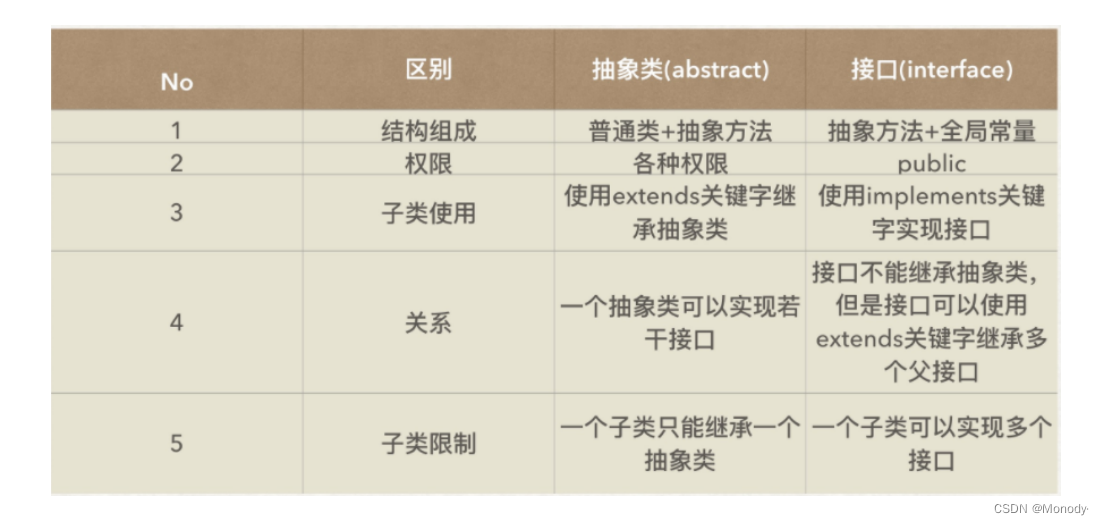


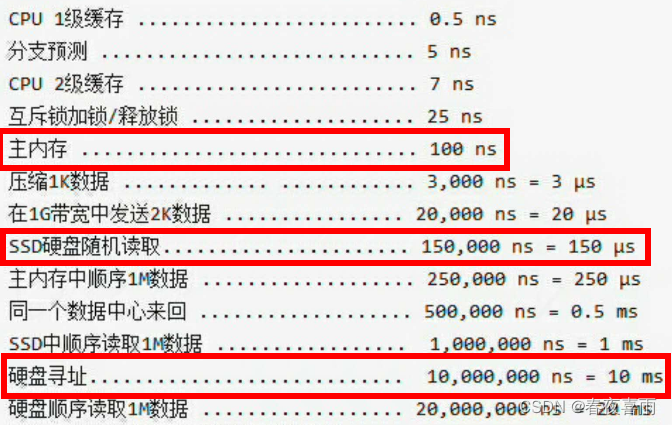

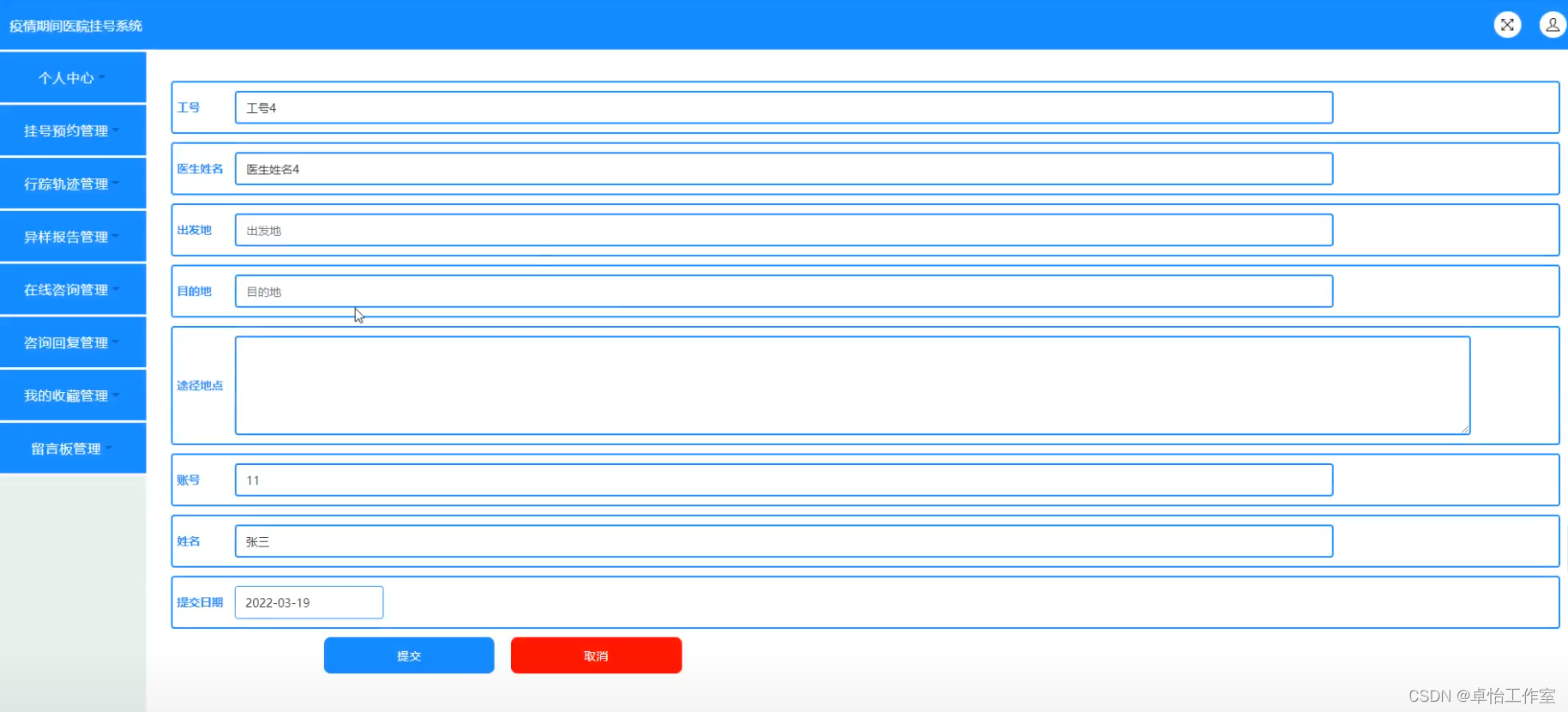

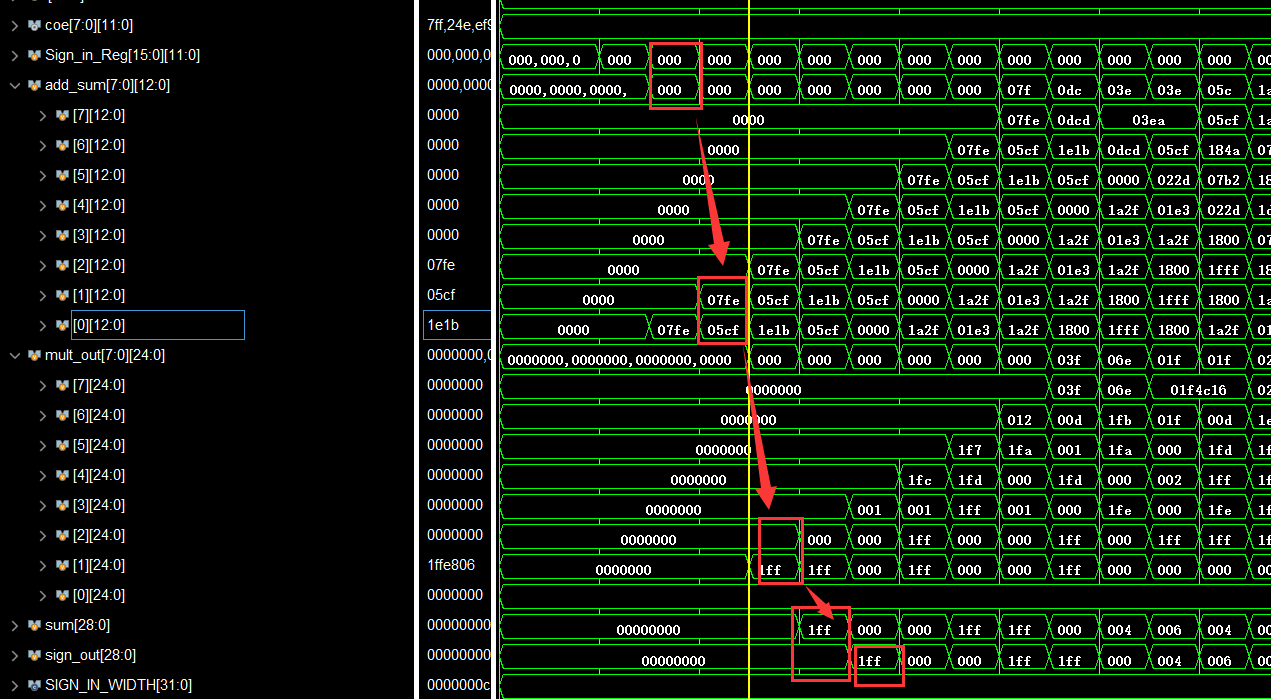
![23. [Python GUI] PyQt5中的模型与视图框架-抽象视图基类QAbstractItemView](https://img-blog.csdnimg.cn/img_convert/5505c6d90f2c403d5f6388f6ad571837.png)
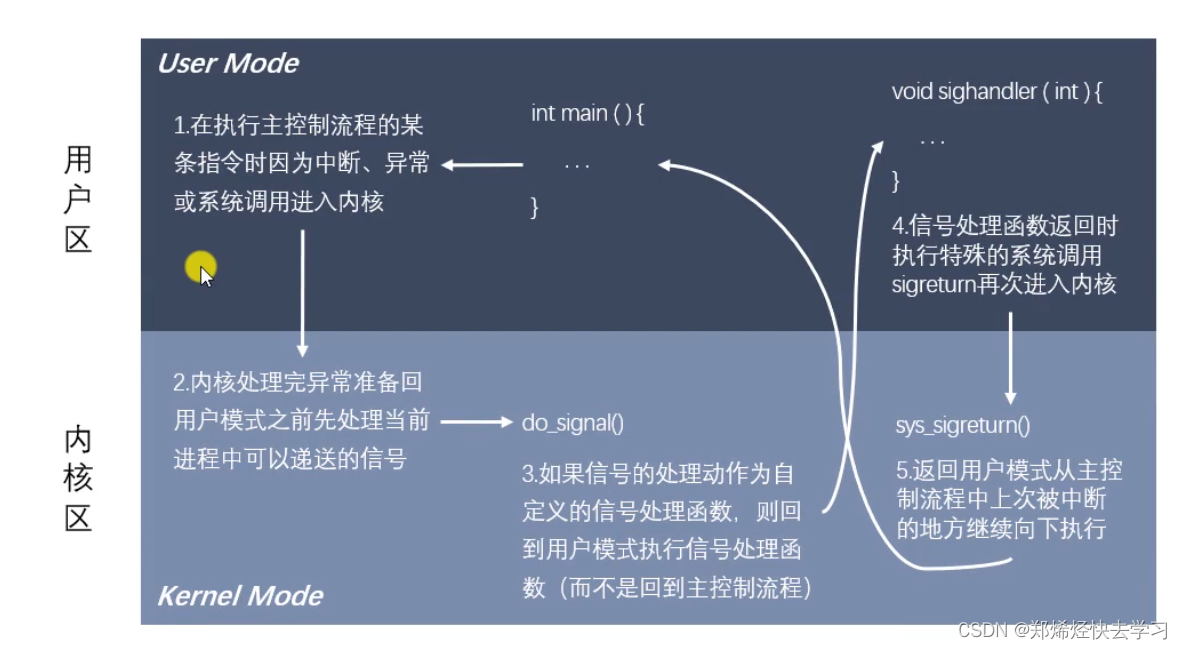


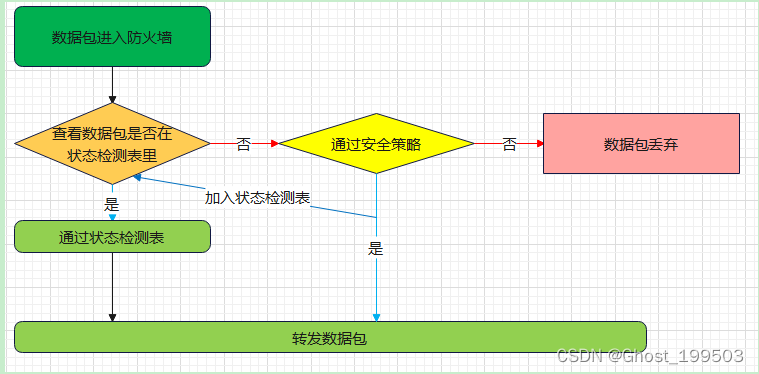
![[附源码]java毕业设计中医药系统论文2022](https://img-blog.csdnimg.cn/57faca948a704c83883a9c442fc7ced0.png)


